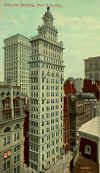 |
New York
Architecture Images- Gone The Gillender Building |
|
architect |
|
|
location |
Wall Street at Nassau Street, NW Corner |
|
date |
1896-1910 |
|
style |
Classical Revival |
|
construction |
|
|
type |
Office Building |
|
|
 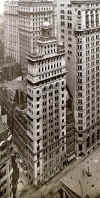 |
|
images |
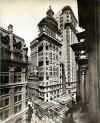 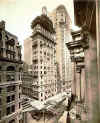 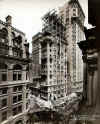 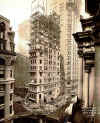 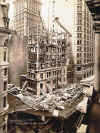 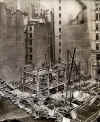 |
|
|
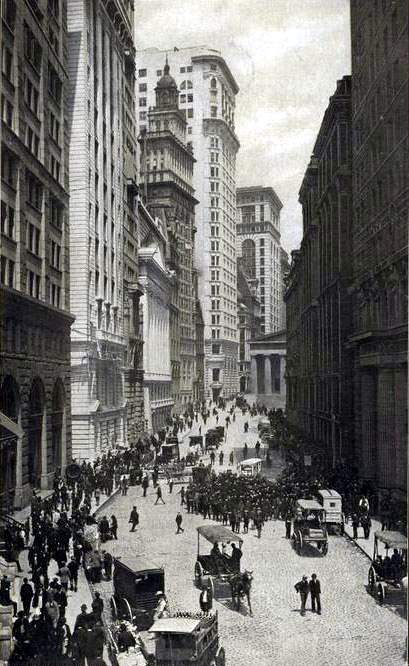 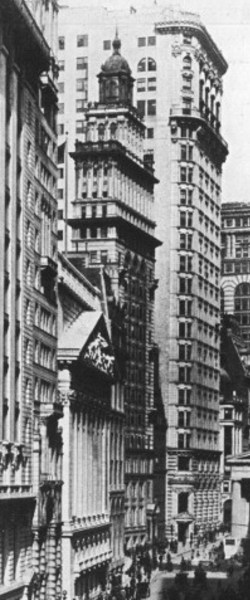 |
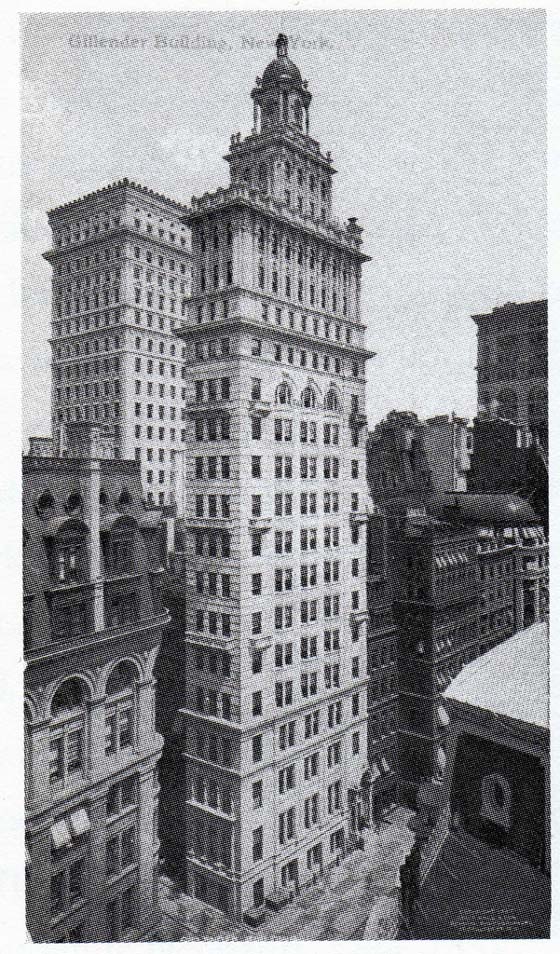 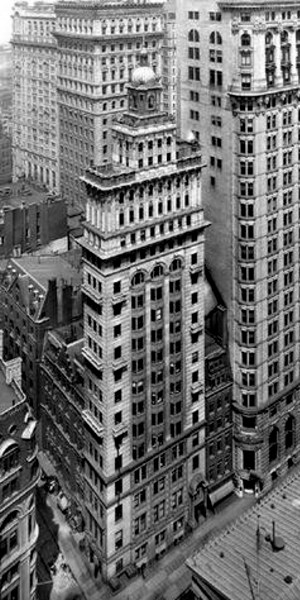 |
|
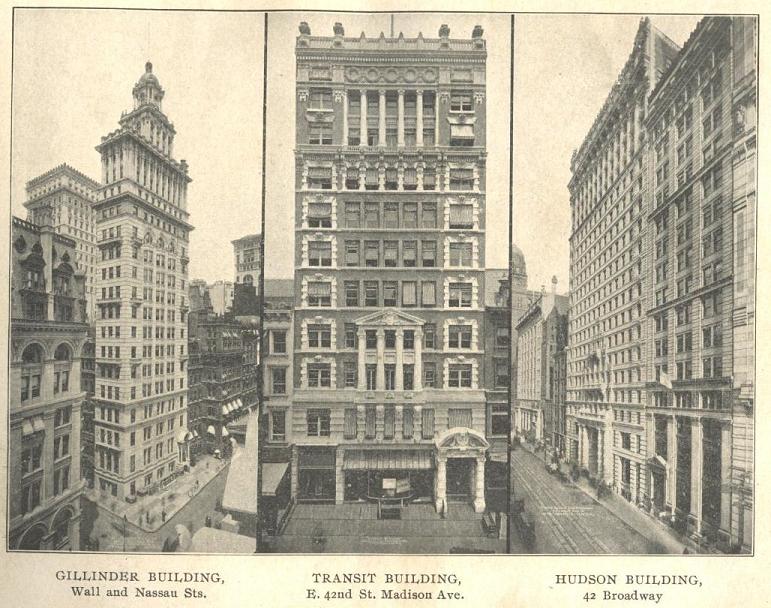 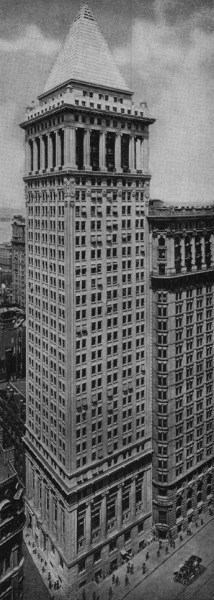 |
|
|
notes |
Was demolished
just 13 years after it was completed and replaced by the Bankers Trust Co.
Building.
The office tower, located at the northwest corner of Wall, Nassau and Broad Streets - the most famous intersection in business history - is the product of a long cycle of construction and reconstruction that tells a story about the intersection of the architectural, engineering, business and real estate forces that have shaped New York City. Long occupied by commercial uses, the value of the lot at the corner of Wall and Nassau Streets rose more than tenfold by 1896 when the owners decided to replace a 6-story structure, the Union Building, with a 300-foot tall tower. The slender Gillender Building - then fourth tallest in the city - rose 22 stories on a site of only 26 x 73 feet. Twelve years later the building and lot were sold to the Manhattan Trust Company for the highest price ever recorded in Manhattan: over $800 a square foot, according to the New York Times. The same year, the Bankers Trust Company, which absorbed the Manhattan Trust, negotiated a lease on the adjoining L-shaped lot, home to the 7-story Stevens Building. The company decided to replace the Gillender - then the tallest building ever razed - and the Stevens with a much larger structure on a combined lot of 93 x 96 feet. At 41-stories, the new building was the tallest banking building in the world when it opened in 1912 Fewer than 20 years later, the Bankers Trust Company expanded yet again by acquiring three additional neighbors: the 8-story Astor Building at 10 Wall Street and 9 Pine Street, the 10-story 7 Pine Street, and the turn-of-the-century Hanover National Bank. Rather than start from scratch again, the company opted to construct an annex to the original tower, designed by Shreve, Lamb and Harmon, architects of the Empire State Building. This L-shaped Art Deco annex more than tripled the building's rentable area Today the exterior of the Bankers Trust Building remains unchanged and, as a protected landmark, will do so in perpetuity |
|
links |
http://www.skyscraper.org/virtualarchive/v_bt/bt_01.htm |